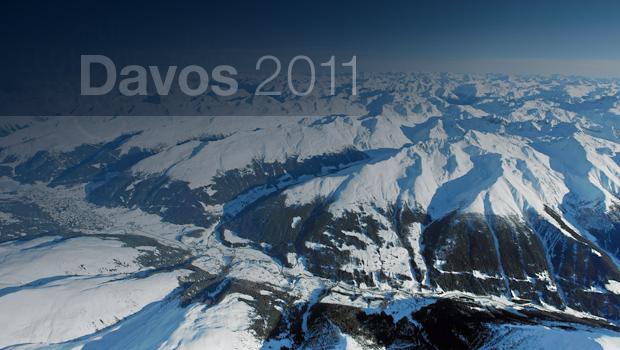
Dateline Davos – The security around this Alpine village has been even tighter than usual in anticipation of its opening, keynote speaker this evening, Russian President Dmitry Medvedev.
Many of us were surprised that Medvedev kept his Davos date, despite this week’s terrorist attack. After a moment of silence, in which all paid respect to those lost in this act of barbarism, Medvedev declared that the reason is simple: he would not allow terrorists a veto on his ability to speak to the world community.
That’s a sentiment we can all heartily endorse.
But even against the backdrop of Domodedovo, clear-eyed observers must recognize that domestic politics is never far from the surface. Medvedev’s most important constituency after Prime Minister Vladimir Putin is world opinion. His best hope of staying in office is that some collection of power brokers, Putin being most important among them, will decide that they need the sort of leader the Davos crowd embraces and (quite literally) invests in.
However, perhaps even more telling than where Medvedev speaks is where he doesn’t. The organizers of the Munich Security Conference (MSC), where the sharper defense edge of world problems are handled, unsuccessfully tried to land the Russian president for its annual session that begins late next week. (I’ll report from there as well).
Medvedev warmly received a Munich delegation a couple of months back, led by MSC chairman Wolfgang Ischinger (who is also an Atlantic Council board member). Some of us reckoned that he was signaling that he might be ready to soften the nasty tone Putin brought to Munich four years ago when he "declared the eastward expansion of NATO a provocation and threatened that Russia had weapons on hand that could neutralise the anti-missile defence shield planned to be installed by the US in Eastern Europe."
That was then followed by Vice President Biden’s speech in Munich at the outset of the Obama administration, when he famously called for a "reset" to U.S.-Russian relations. Following U.S. Congressional approval of the new START treaty in December, the way seemed clear for Medvedev to visit Bavaria bearing an olive branch.
Sadly, that isn’t going to happen.
Diplomats in the know explain it this way: Putin isn’t ready for his own reset, and thus Medvedev is left with little to say. If he publicly distanced himself from Putin’s performance, he would endanger himself. Yet if he endorsed Putin’s position, he would further irritate the West after a recent string of disappointments, from the harsh sentencing of former Yukos boss Mikhail Khodorkovsky and the Kremlin’s blessing for Belarusian President Alexander Lukashenko’s election fraud and opposition crackdown.
Though there are many theories regarding the relationship between Medvedev and Putin, the one that convinces me most is that Medvedev’s future will be decided primarily by Putin. What Medvedev said in Davos provided some insight, but the fact that he chose to speak here and not in Munich is even more telling.
Fred Kempe is president and CEO of the Atlantic Council.
Image: davos2011.jpg
